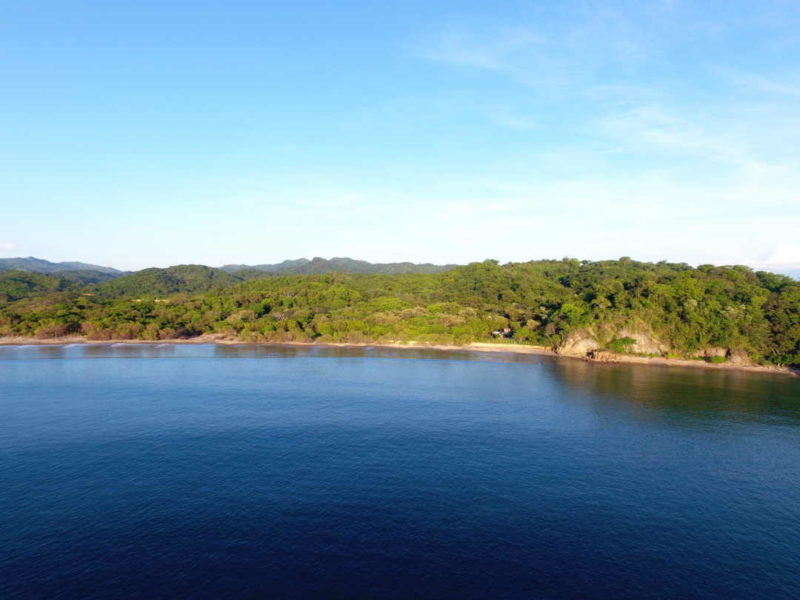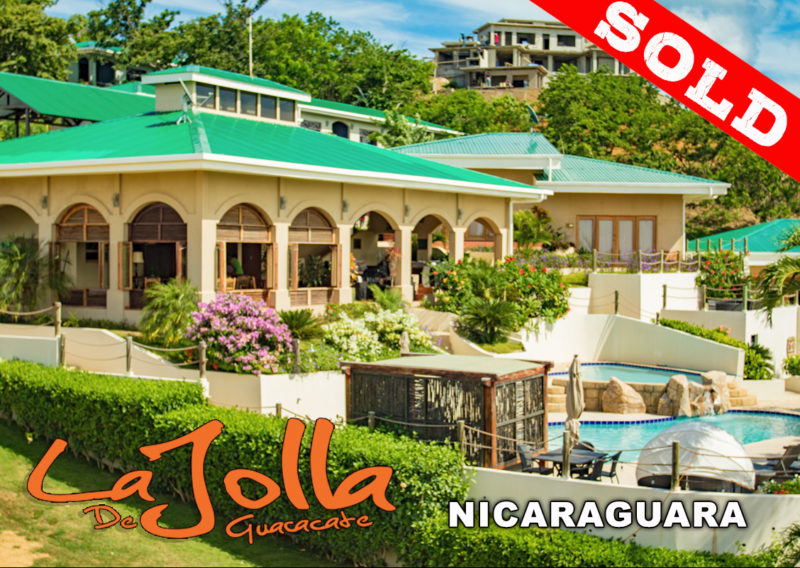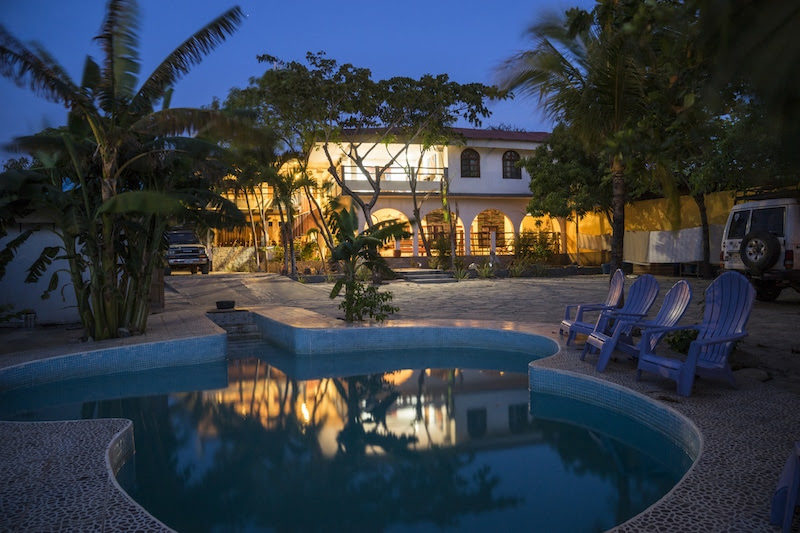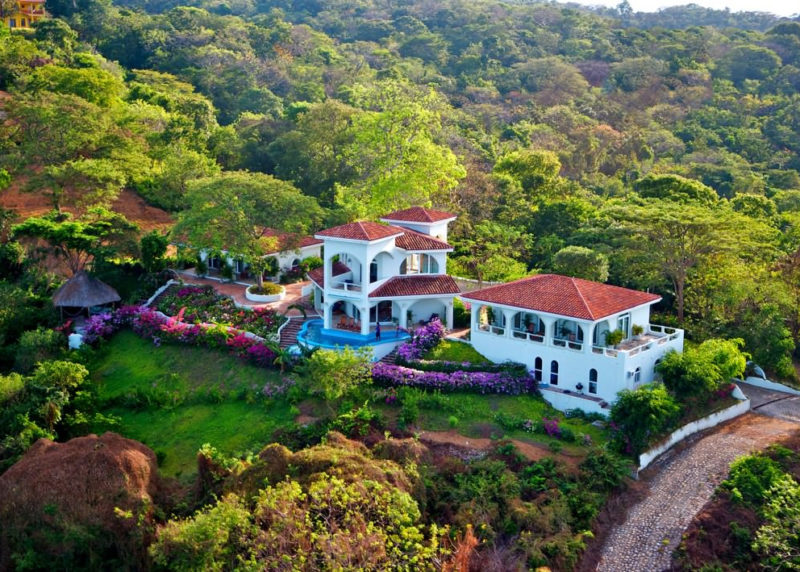Nicaragua has been described as the “rising star” of Central America. And there is certainly plenty of reasons for why it has earned that moniker. The country boasts one of the fastest growing economies in the region, in all of the Americas in fact, with an economic growth rate over the past 5 years of 5.2%. In addition to this, the tourism industry in Nicaragua is growing at a feverish pace, generating a total of over $500 million. For an investment property, Nicaragua real estate is a prime destination. In addition, the incredibly low cost of living in Nicaragua makes it an equally attractive destination for vacation, full time living, or retirement real estate purchases. Buying real estate in Nicaragua has many, many appealing sides to it.
1) Buying as a Foreigner
Want to purchase property in Nicaragua but worried about restrictions? You’re in luck. With a couple small exceptions there are no restrictions on foreigners investing in Nicaragua.
The purchase and registration process is the same for expats and locals. With a good lawyer and agent it’s simple and easy. There is no need to have a local partner and you can have the escritura, the deed, free and clear in your name. All we need is your passport, some basic personal information, and we can set everything up for you.
2) Financing
In 2020 the market is excellent for cash buyers looking for bargains. There are also motivated sellers willing offer owner financing hoping to get a quicker sale.
Prior to the political issues of 2018 banks were providing mortgage financing to foreigners. Interest rates were high, at 8.5% to 9.5%, but it did provide a local, long term, financing option. Now with, a few exceptions, those loans have dried up. And the ones that do exists have interest rates of up to 14%. It just does not make financial sense to get a mortgage here.
In its place we are seeing much more seller or “vendor take back” financing. Common down payments are 50% with terms of two to three years at 5-7% interest. There are some longer term deals happening, up to five years, but those are less common. These terms are negotiable and it varies case by case.
3) Where can I buy property Nicaragua?
The short answer is almost everywhere.
The only real restricted area is near international borders. Within five kilometres of the border with with Costa Rica or Honduras, foreigners are excluded from purchasing land. The stated reason is national and border security.
From five to fifteen kilometres of the border foreigners can buy but they then must apply for and receive a waiver permit in order to register the property. We’ve seen those permits take as long as two years to get. Given all the great properties you can get elsewhere, I wouldn’t recommend buying anywhere within fifteen kilometres of the border.

Oceanfront: You can own oceanfront property as a foreigner. The “Ley De La Costa” or Law of the Coast states that all land within 50 meters of the high tide line is property of the country. It can be leased and improved upon but generally not owned.
That is- unless that property is a cliff rather than a beach. If it’s a cliff-front the property may be titled almost right up to the vertical water line. Chat with your agent and lawyer if you are looking at ocean front to confirm the details.
There are also some older oceanfront properties deeded before the current law came into effect. They may have shorter distances grandfathered in.
4) Finding Your Property
In Nicaragua there is no Multiple Listing Service or MLS. Therefore your best option is an experienced local agent who can help you in your search. Since you are still reading my article I would love it if you choose to work with me.
However there are other good ones as well. Just make sure that you ask around about both their company and their individual reputation before choosing one. Your real estate agent is the most important decision you can make when buying property in Nicaragua.
5) Valuation and Making an Offer
Property prices in Nicaragua are somewhat negotiable. Your agent will investigate the property to determine its condition, comparable recent sales, how long the it’s has been on the market, and how motivated the seller is. With that information they will help you craft an opening offer.
Found your perfect property for sale in Nicaragua? Awesome, time to make that offer! In order to put an offer in we at International Surf Properties require $1000 in earnest money. We accept wire transfer, cash, national check and PayPal. This refundable deposit ensures that you are truly interested in purchasing a property.
If the seller accepts your offer this $1000 transfers over and become part of your 10% deposit. If we can’t come to an agreement with the seller the money is returned to you. Simple as that.
6) Hiring a Lawyer
You’ve found your dream property in Nicaragua, made an offer, and had it accepted. Now it’s time to get a great lawyer.
If you are going to be returning to your home country during the purchase process we recommend getting a power of attorney. It’s a limited document granting the ability to purchase this property in your name only at your instruction. This way your team here can perform all of the tasks necessary without you having to fly back down.
Your lawyer will also open an escrow account just for you. This serves to protect your investment in the event of any issues discovered during due diligence. It works just like escrow in the United States or Canada.
7) Deposit and Transferring Money
Great so we’ve gotten the agreement, lawyer, and escrow all set up. The next step is usually a 10% deposit, plus a portion of the legal fees, paid into escrow within ten days.
Your $1000 in earnest money described earlier forms part of this deposit. These funds serve to take your property off the market and hold it while due diligence is on going. And they are non-refundable should the due diligence come back clean. More on due diligence below.
How do we handle tansfers? There are several options.
Most clients choose to make use of the lawyers escrow account. It’s set up in your name once we have completed the privates sales agreement. If it is a US seller we can deposit the funds into a Bank of America escrow account.
You can open your own bank account here and transfer to yourself from your home country. We recommend Banco Lafise for its professional service and international network. Opening your own account for the transaction, however, normally takes a couple weeks.
For that reason we recommend using escrow, especially if this is your first investment in the country.
8) Due Diligence
Time for the lawyers to get to work. During the due diligence process the lawyers will go deep into research about the property. They research the escritura (deed), liens against the property, tax records, utility bills, employment records if applicable, and home owners association fees.
Should any issues arise during the process, such as property taxes owing, the seller would pay the balance prior to closing or they we be deducted from funds dispersed to them. Should the issues be significant enough to compromise the sale the buyer has the option of declining the purchase and receiving the 10% deposit back.
9) Closing

Escrow usually lasts about 45 days. During that time the lawyer performs the due diligence and makes sure the property is ready to be transferred. Usually the lawyer has determined the the property is clean after about 30 days. We recommend transferring the remainder of funds including closing costs then.
That gives 15 days for remainder of funds to arrive in Nicaragua. In that way we can transfer the property to you on closing day!
Congratulations! You now own a property here in Nicaragua?
What comes next?
10) From Funds Already Sent We Pay Taxes
The closing costs vary based on the valuation of the property. The fees include:
-
Municipal Tax: 1% of the deed price (depending on municipality)
-
Property Registration Fee: 1% of the deed price or 1% of the appraisal performed by the municipality, whichever is greater.
-
Legal Fees: minimum 1 and up to 1.5% of the purchase price plus between $100 -$250 government agency related costs
-
Transfer Tax: Based on the deed price and the tax assessment, whichever is higher. The government will perform a survey and assess a value after closing. The transfer tax is then applied based on the greater of the two numbers. The tax rate is:
-
1% for properties under $50,000
-
2% for properties between $50,000 and $100,000
-
3% between $100,000 and $200,000
-
4% between $200,000 and $300,000
-
5% between $300,000 and $400,000
-
6% between $400,000 and $500,000
-
7% over $500,000
-
Unless the property is held in a corporation – If the property is held in a corporation you can buy the shares and avoid the transfer tax, municipal tax, and property registration fee. Just pay legal fees and closing costs below.
-
11) And We Settle Closing Costs
-
Escrow Service: A little over 0.5% of the purchase price. If closing is carried out by the same law firm, you get a usually get a discount of the 50% on the escrow fee.
-
Translation Fees: Varies on the document needs of the buyer
-
Power of Attorney: $50 to $100 depending on the law firm
-
Survey and Cadastral Certificates: Between $150 to $250 depending on the surveyor and size of lot
-
Wire Fees: They are applied when wiring money to Nicaragua, varying from $25 to $100, depending on the bank and the amount of the transfer
12) Registering the Property
The final steps to complete the purchase process can only be completed once the contracts have been signed and the property has been paid for. Your lawyer and realtor will complete those steps over the coming months. Usually it takes 90 days post closing for your property to be duly registered with all of the government agencies in Nicaragua.
13) List of Important Documents
-
Escritura: The deed. Here in Nicaragua the escritura is equivalent to the title or deed in other countries. It demonstrates who holds legal ownership of the property.
-
Plano: The plot map. It is a physical map that shows the boundaries of the land.
-
Solvencia Municipal: Municipal solvency. This document shows that the property taxes are up to date.
-
Libertad de Gravamen: Certificate of no liens. This document shows that the property has no liens, outstanding loans or other encumbrances
-
Historia Registral: This document shows the public history of the land for the previous thirty years.
-
Promesa De Venta: Promise of sale. If there is seller-financing this document secures the property and defines the terms of payment and schedule.
14) Other Terms to Know
-
Catastro: Office where the plano is kept (measurements, physical description)
-
Registro Publico de Propiedad: Public real estate registry. Office where equal copy of the Escritura is kept
-
Impuesto de Bienes y Inmuebles: Annual real estate tax. Typically around 1% of value of the property. If this is paid before March of each year there is a 10% discount
-
HOA: Homeowners Association Fee. If you are buying in a private development there will usually be a monthly fee to cover road maintenance, and possibly security and utility services. Check with your agent to compare fees and services to and determine which development is right for you.
Feeling Overwhelmed?
Don’t worry, this is what were here for. Our job as real estate brokers and agents here in Nicaragua is to help you navigate the process and ensure you are comfortable every step of the way.
_____________________________________________________________________


